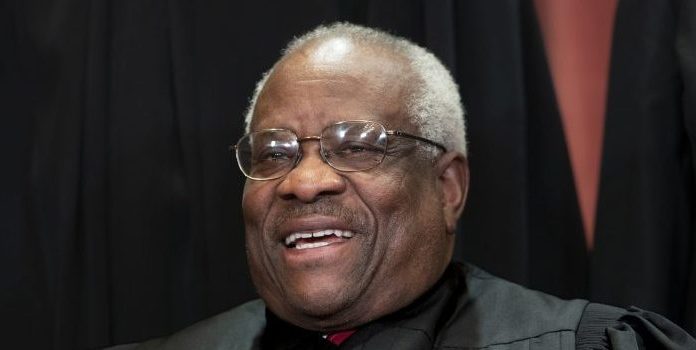(Headline USA) The affirmative action programs at the University of North Carolina and Harvard University will come under scrutinyon Monday SCOTUS is set to begin reviewing the constitutionality of this policy of using race as a criteria of admission.
The case, following the Dobbs decision which overturned Roe v. Wade in June, offers another test of whether the court will move the nation’s policies to the right on another essential cultural issue.
The court is hearing two cases Monday, involving UNC and Harvard, the nation’s oldest public and private universities, respectively.
The challengers to the universities’ programs claim that the schools discriminate against white and Asian American applicants.
Jacob James, 20, of Robersonville, North Carolina, recognized the value of diversity, but argued that affirmative action quotas are unjust and racist.
“Diversity on college campuses is good, but it shouldn’t come at the expense of fairness,” said James, the chairman of UNC College Republicans. Affirmative action, he said, “unfairly disadvantages some individuals over other individuals based on race.”
Nine states already prohibit any consideration of race in admissions to public colleges and universities: Arizona, California, Florida, Georgia, Michigan, Nebraska, New Hampshire, Oklahoma and Washington.
The earlier cases on affirmation action are each known by a single name: Bakke, Grutter, Gratz and Fisher.
A look at what they have done since the Supreme Court made their names synonymous with the issue of race in higher education:
Allan Bakke was in his 30s when he applied to the medical school at the University of California, Davis. Rejected twice, Bakke sued. He said the school’s decision to set aside 16 seats for minority students in a class of 100 discriminated against him as a white man. The Supreme Court agreed and ordered him admitted. But the court allowed the use of race as a factor in admission if it was part of an overall evaluation of an applicant. Bakke graduated in 1982 and worked for years as an anesthesiologist in Minnesota. He has kept out of the spotlight since his case.
- Grutter v. Bollinger, 2003
Barbara Grutter was Michigan resident who applied to the University of Michigan Law School in 1996. Grutter, who is white, had a 3.8 grade point average but was rejected. She sued for discrimination, claiming the school’s policies gave certain minority students a significantly greater chance of admission. The Supreme Court said in a 5-4 decision that the law school’s admissions policy, which considered race as one factor in admissions, was not illegal. The decision allowed the continued use of race in admissions.
The Bollinger in the case was Lee Bollinger, who was sued in his capacity as the university’s then-president. Bollinger, now Columbia University’s president, told reporters recently that he is “worried about the outcome” of the current cases.
- Gratz v. Bollinger, 2003
The companion case to Grutter’s involved Jennifer Gratz, a white woman denied undergraduate admission to Michigan. Unlike Grutter, Gratz won her case. The Supreme Court agreed that the school’s undergraduate admissions system was flawed because it relied too heavily on race.
Frustrated that affirmative action survived anyway, Gratz was instrumental in Michigan’s passage of Proposal 2, which ended race-based preferences in state university admissions. The ban survived its own trip to the Supreme Court. Gratz went on to open a microbrewery in Florida with her husband.
Abigail Fisher is Supreme Court famous twice over. Fisher, who is white, sued after being rejected in 2008 from the University of Texas at Austin. A cello player who also participated in math competitions and did volunteer work, she graduated just shy of the top 10% of her class. She argued the university’s policy discriminated against her because of race, in violation of the Constitution.
Her first Supreme Court case was inconclusive. Three years later, when her case returned to the court, the justices in a narrow ruling upheld the school’s use of affirmative action. Only seven justices ruled in the case, however, because Justice Antonin Scalia had died and Justice Elena Kagan was recused.
Fisher, who has called herself an “introverted person,” graduated from Louisiana State University in 2012 and worked in finance, but she hasn’t given up on the affirmative action issue. Now in her 30s she’s one of the leaders of Students for Fair Admissions, the group that brought the UNC and Harvard cases to the high court. The group’s head is Edward Blum, a former stockbroker who also financially backed Fisher’s original case and other race-based Supreme Court cases.
Adapted from reporting by the Associated Press

